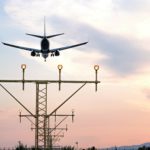The International Air Transport Association (IATA) has called on governments to urgently put in place large-scale incentives to rapidly expand the use of sustainable aviation fuels (SAF) as aviation pursues its commitment to achieving net zero carbon emissions by 2050.
Current estimates are for SAF to account for 65 per cent of aviation’s carbon mitigation in 2050. That would require an annual production capacity of 449 billion litres.
Surging annual production
Investments are in place to expand SAF annual production from the current 125 million litres to 5 billion by 2025. With government incentives, production could reach 30 billion litres by 2030, IATA said, which would be a “tipping point” for SAF production and utilisation.
“Governments don’t need to invent a playbook. Incentives to transition electricity production to renewable sources like solar or wind worked. As a result, clean energy solutions are now cheap and widely available. With similar incentives for SAF, we could see 30 billion litres available by 2030. Though still far from where we need to be, it would be a clear tipping point towards our net zero ambition of ample SAF quantities at affordable prices,” said Willie Walsh, IATA’s Director General at the 78th IATA Annual General Meeting in Doha, Qatar.
Every drop of SAF purchased
In 2021, despite SAF being between two and four times the price of conventional jet fuel, airlines purchased every drop of the 125 million litres of SAF that was available.
By applying similar incentive-based policies to SAF, governments can support global SAF production to reach 30 billion litres by the end of the decade, IATA said. This would send a “clear signal to the market that SAF is playing its intended long-term role in aviation’s decarbonisation and encourage investments to drive up production and drive down the price”.
US sets example
IATA noted: “The market for SAF needs stimulation on the production side. The United States is setting an example for others to follow. Its SAF production is expected to reach 11 billion litres in 2030 on the back of heavy government incentives.
“Europe, on the other hand, is the example not to follow. Under its Fit for 55 initiative, the EU is planning to mandate that airlines uplift 5 per cent SAF at every European airport by 2030. Decentralising production will delay the development of economies of scale. And forcing the land transport of SAF will reduce the environmental benefit of using SAF.”

